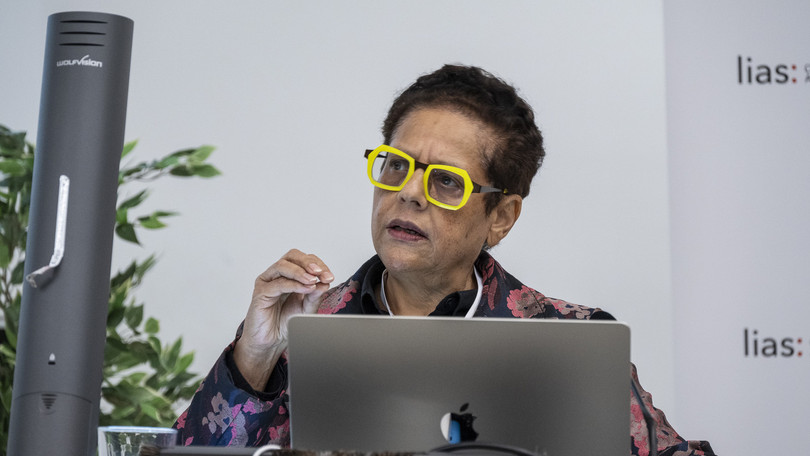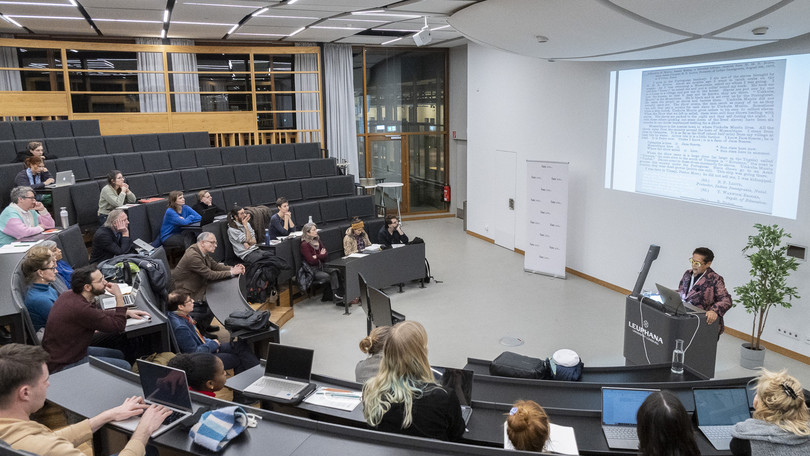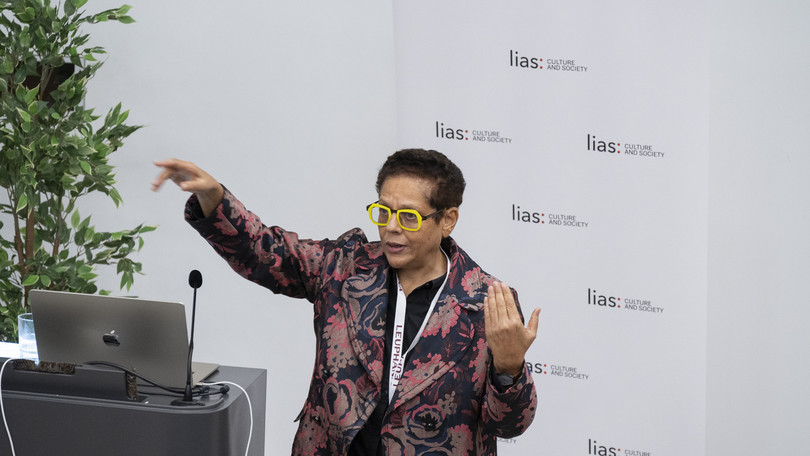„‘At Low Tide it is a Little Further‘: Narratives of Liberated Africans and Post-Slavery between 1806 and 1886“
3rd LIAS Lecture: Yvette Christiansë
2024-01-29 Yvette Christiansë, Clair Tow Professor of Africana Studies and English Literature at Barnard College, Columbia University, took the audience in the third Leuphana Institute for Advanced Studies in Culture and Society (LIAS) Lecture on a journey into one of the historical documents from which she endeavours to glean the voices of liberated African slaves in the 19th century.
This category of persons, formally free, yet not permitted to return to their original homes on the grounds that they would again be captured and sold into slavery, were brought to so-called safe havens, and then often placed in apprenticeships or sent to work on plantations across the British empire as indentured labour. Such liberated African slaves, Christiansë emphasized, embody the emergence of global regimes of cheap labour in the transformation to capitalist production following the gradual abolition of slavery after 1833. They were expected to live productive, “respectable” lives according to metropolitan conceptions of the good life.
But how did liberated Africans actually experience their “liberation” and their integration into new regimes of living and working? Direct documentation of their own voices and subjectivities is rare. However, one can salvage fragments of their lives by drawing on several types of historical documents. One such category of documents is the depositions collected to provide the British bureaucracy with an account to justify the interception of a ship in international waters. In such documents, liberated Africans appear in the collective as “we” or “they”, rarely do they feature as specific individuals recounting their own story as an “I”.
Yet, one such deposition is a remarkable exception. It reproduces a (heavily edited) account of the liberated slave, Maria, collected by British authorities after the ship that she was being transported on was intercepted and its human cargo “freed” to be taken to a safe port of call. In her lecture, Christiansë invited the audience to join her as she undertook an exemplary fine-grained reading of that document, highlighting some of the methods by which she critically and carefully analyses sources to disentangle the imprints of different bureaucratic colonial stakeholders from the fragments of what remains of Maria’s own voice. Christiansë showed listeners through her close engagement with an excerpt of the deposition that reconstructing such voices is as much about reading the actual text within the conditions of possibility that produced it as a discourse about reading its silences and dis-appearances.



